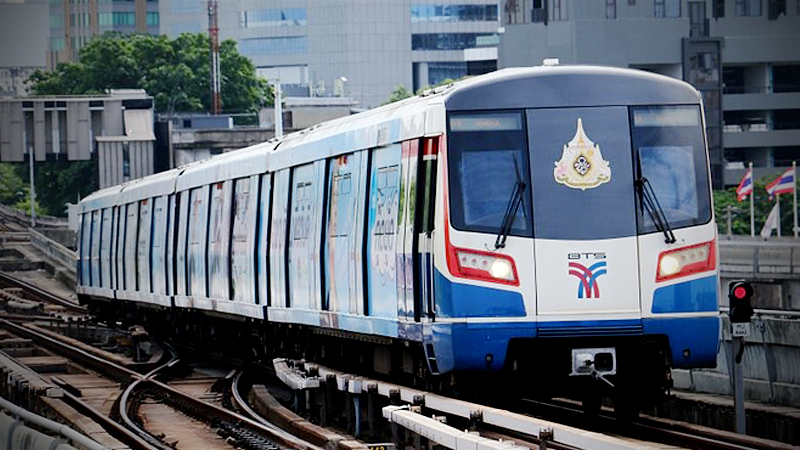BMA looks into three approaches to solve thorny issues with BTS

January 15 will be the last day the Bangkok Metropolitan Administration (BMA) allows commuters to use the Green Line Skytrain extension sections for free, after the sections that run from Mo Chit to Ku Kot stations on the northern route and from Bearing to Samut Prakan stations on the southern route were officially opened for public use on December 16.
Bangkok Governor Aswin Kwanmuang earlier said that the BMA had been negotiating with Skytrain operator Bangkok Mass Transit System Plc (BTS) about the fair for the BTS network, which consists of 59 stations covering a total distance of 68 kilometres.
Despite a preliminary study concluding that the suitable maximum train fare for all BTS routes should be Bt158, Aswin said: “We aim to set the starting fare at Bt15 and a maximum fare of Bt65 to avoid creating a financial burden for passengers.
“The BMA will also discuss with the BTS train operation fees of Bt8.6 billion that we still owe them, and we will ask the government to help solve the issue,” he said.
This has hindered BTS’s extension of the contract for operation of the Green Line extensions.
A BMA news source recently said the administration was considering three approaches to solve thorny issues with the BTS.
The first approach is for the BMA to look for a new contractor to operate the Skytrain after the existing contract expires in 2029. This will allow the BMA to maintain a low fare rate. However, the BMA will need enough cash to pay a loan interest of Bt1.3 billion per year, as well as other compensations to BTS, including compensation for a loss of extension section services at Bt1.5 billion per year, as well as the Bt20-billion fee for electrical and mechanical systems and another Bt20 billion as compensation to the BTS Rail Mass Transit Growth Infrastructure Fund (BTSGIF).
The second approach is for the BMA to hire the BTS to operate the Skytrain until 2042. This will likely end any dispute with the BTS while making fares flexible for adjustment. However, the BMA still needs enough cash to pay a loan interest of Bt1.3 billion per year and compensation of Bt1.5 billion to the BTS for the loss of services on extended routes.
The third approach is for the BMA to extend the existing contract with the BTS for another 30 years (2029-2059). This will be the best option in case the BMA cannot obtain any aid from the government. Under the terms of the contract extension, the BTS will help the BMA pay the loan interest of Bt1.3 billion per year until 2029, and will have to set fares within the Bt15-Bt65 range. The BTS will also have to share the fare it collects with the BMA at an estimated total of Bt200 billion throughout the contract period. This is subject to increase in case the BTS sees more than 9.6 per cent of turnover.
BTS chief executive officer Surapong Laoha-Unya said the company is awaiting BMA’s decision on the fare rate, but is prepared to operate the Skytrain on extended routes after the free-fare period ends on January 15.
“Normally it take 3-4 days for the system to issue new sets of tickets, but the BTS will inform passengers 30 days in advance as per the contract conditions,” he added.
